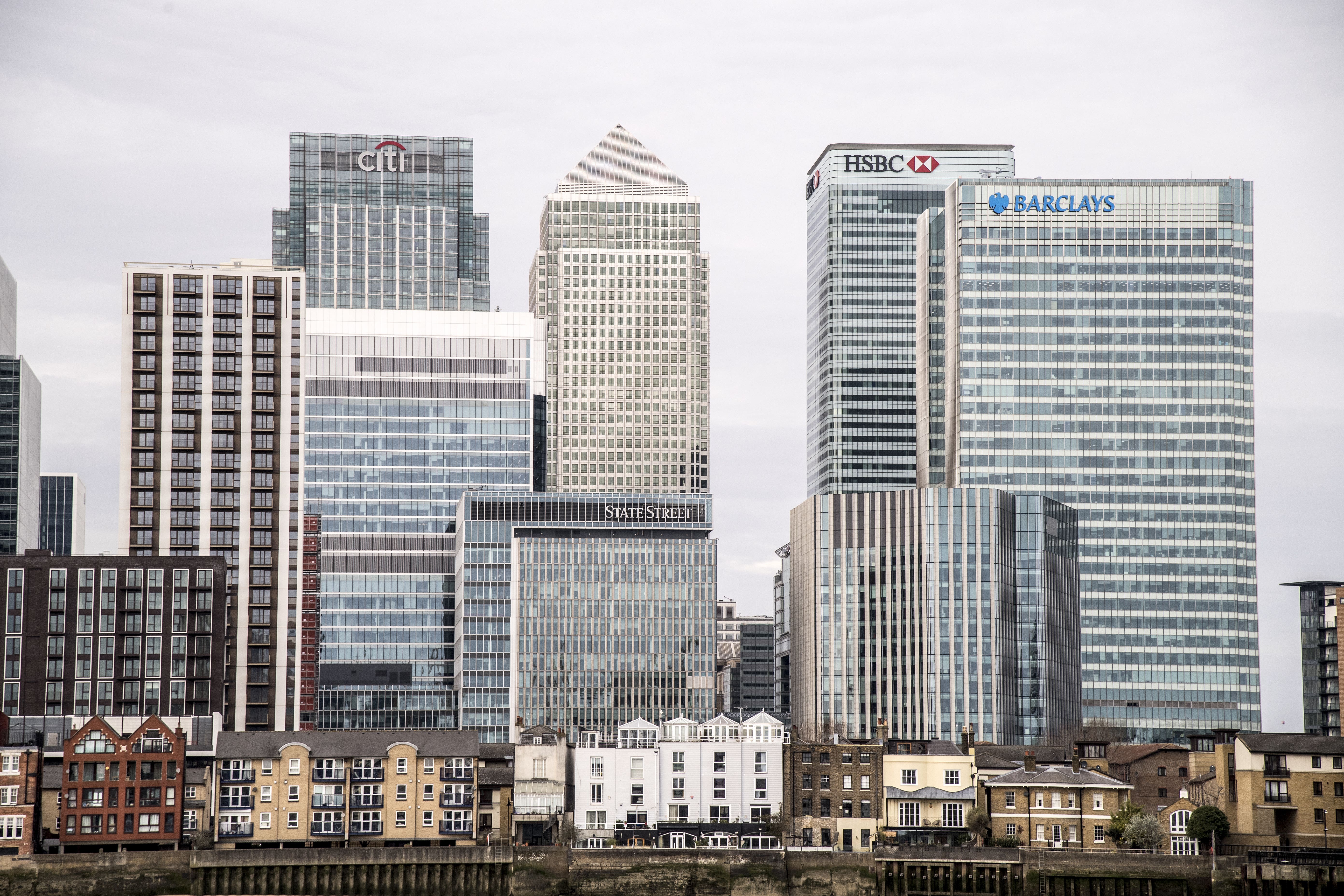Bank surcharge slashed but ‘so-called cut’ means 1% tax rise for sector
Lloyds Banking Group and NatWest saw shares rise by about 1.5% after the Treasury confirmed that the tax on banks’ profits would be cut from April.

Shares of Britain’s major banks have received a boost after the autumn budget confirmed it will slash its tax surcharge on the sector to 3% from 8%.
Lloyds Banking Group and NatWest saw shares rise by about 1.5%, lifting them towards the top of the FTSE 100, after the Treasury confirmed the tax on banks’ profits would be cut from April.
The move aligns with the Government’s decision to hike up corporation tax from 19% to 25% from April, which banks pay on top of the surcharge.
It means banks will still be paying a higher rate of tax than they were previously, but by just 1% rather than the 6% that they could have faced had the surcharge stayed the same.
This so-called cut is, of course, actually a one percentage point increase in rate
The threshold for the surcharge will also be raised from £25 million to £100 million, meaning that smaller banks with fewer profits will no longer have to pay the charge at all.
The Government confirmed that banks will “continue to pay a higher combined rate of corporation tax than most other companies”.
The tax-cutting policy was first unveiled by former chancellor, now Prime Minister, Rishi Sunak last year but was set to be reversed in Kwasi Kwarteng’s mini-budget.
While the surcharge cut has been welcomed by the banking sector, experts warn that UK banks still face a higher tax burden, which deters international investment into the economy.
Richard Milnes, the UK banking tax partner at EY, said: “This so-called cut is, of course, actually a one percentage point increase in rate.
“Banks currently face a high tax contribution compared to other sectors and indeed compared to other nations; the UK also still charges a bank levy, an additional tax burden which no other major financial centre charges.”
Other experts weighed in on the argument that the tax system is important for the UK to remain competitive, as it influences where companies choose to grow and invest.
Banks in the UK pay a higher overall tax rate than any other sector due to the corporation tax surcharge and bank levy
Chris Hayward, policy chairman at the City of London Corporation, said: “It is vital that our tax system remains internationally competitive.
“The UK financial and professional services sector plays a major role in supporting the UK economy by creating jobs, driving growth, encouraging investment and facilitating trade.
“Banks in the UK pay a higher overall tax rate than any other sector due to the corporation tax surcharge and bank levy.
“We hope the Government will commit to delivering a competitive tax system once we get through the current economic challenges.”
Meanwhile, others have pointed out that banks are reporting much larger profits in recent months as they are benefiting from higher interest rates.
NatWest, Santander, HSBC and Barclays were among the high-street banks to report swelling earnings in the latest quarter amid surging mortgage rates.
While energy companies have been slapped with higher windfall taxes, the Chancellor decided not to introduce a similar measure for banks.
Bookmark popover
Removed from bookmarks